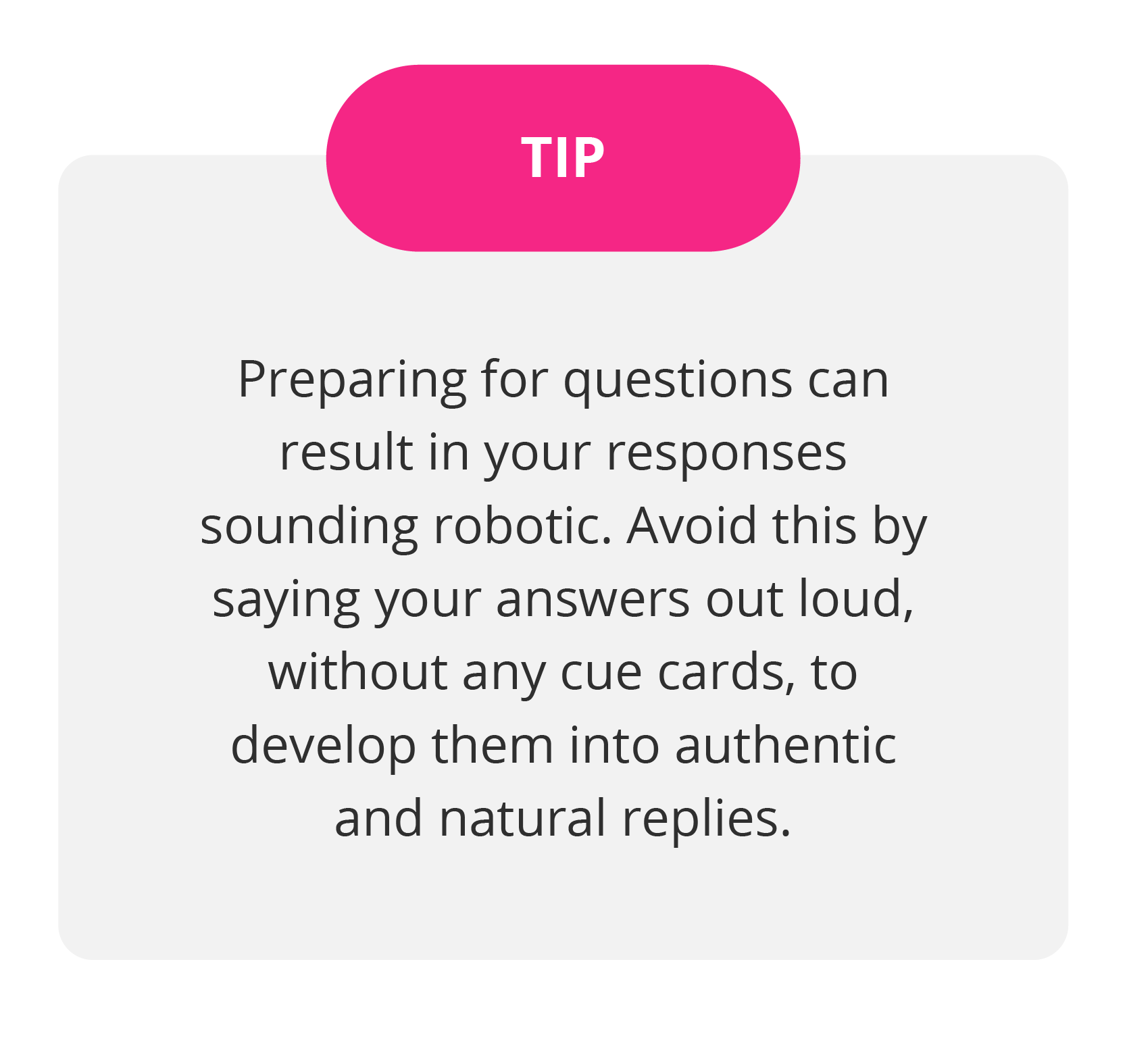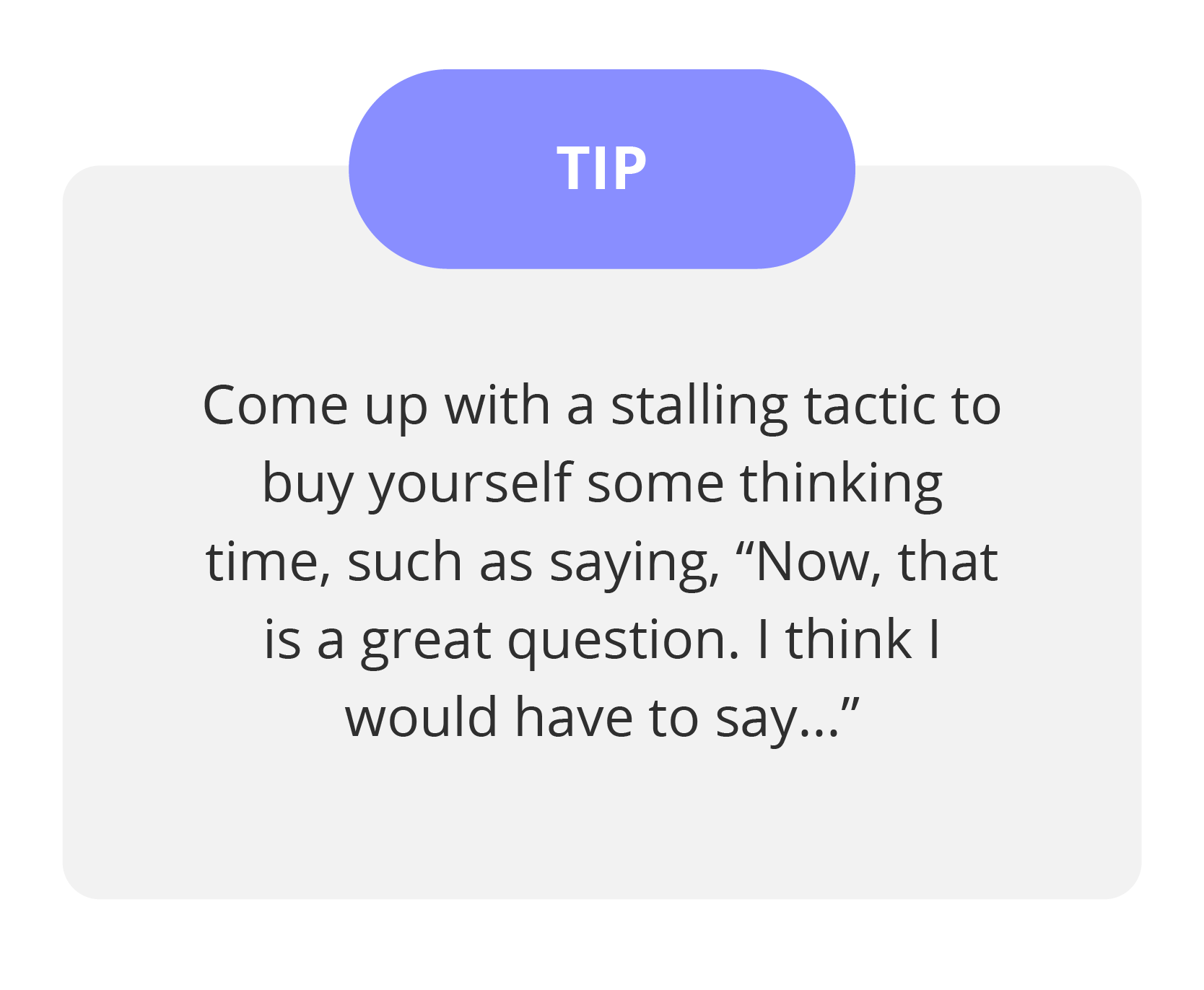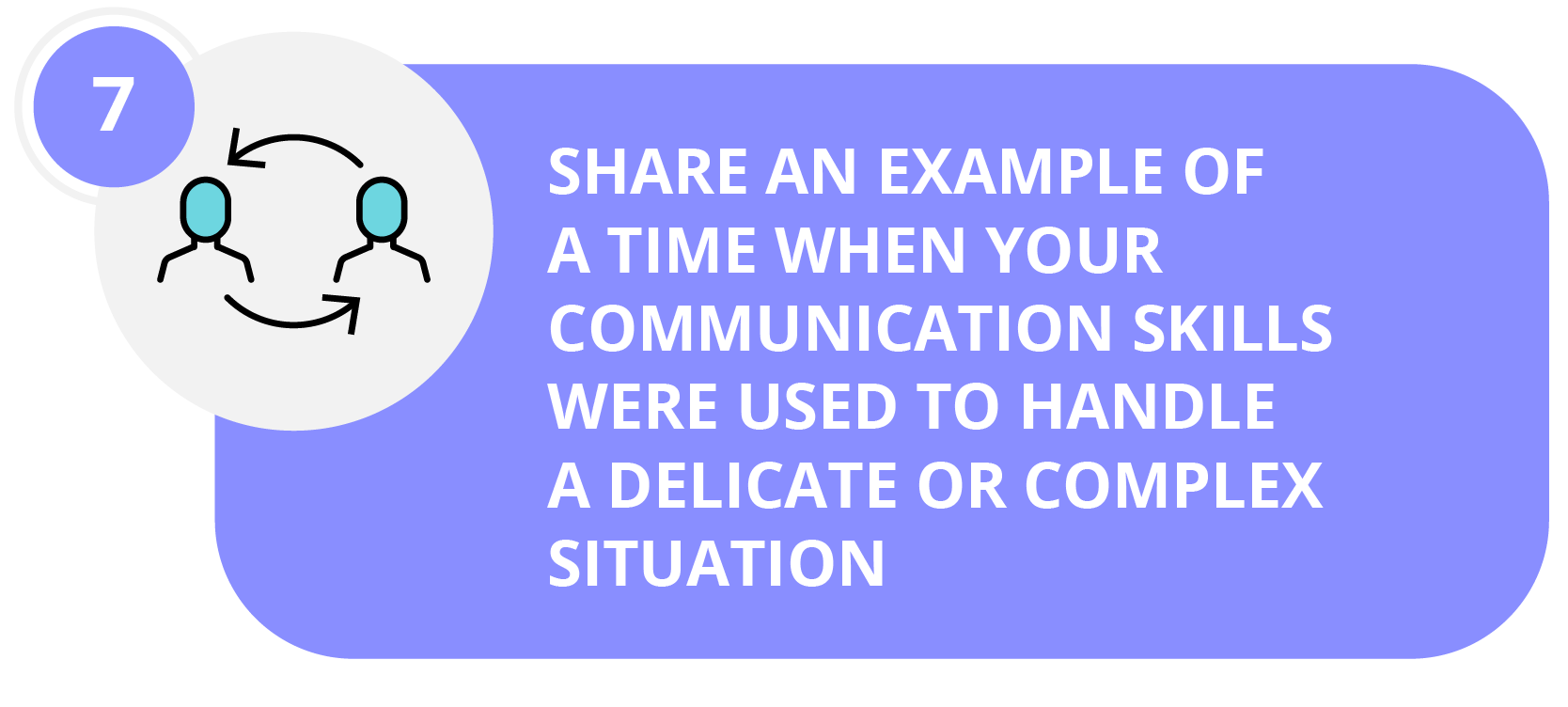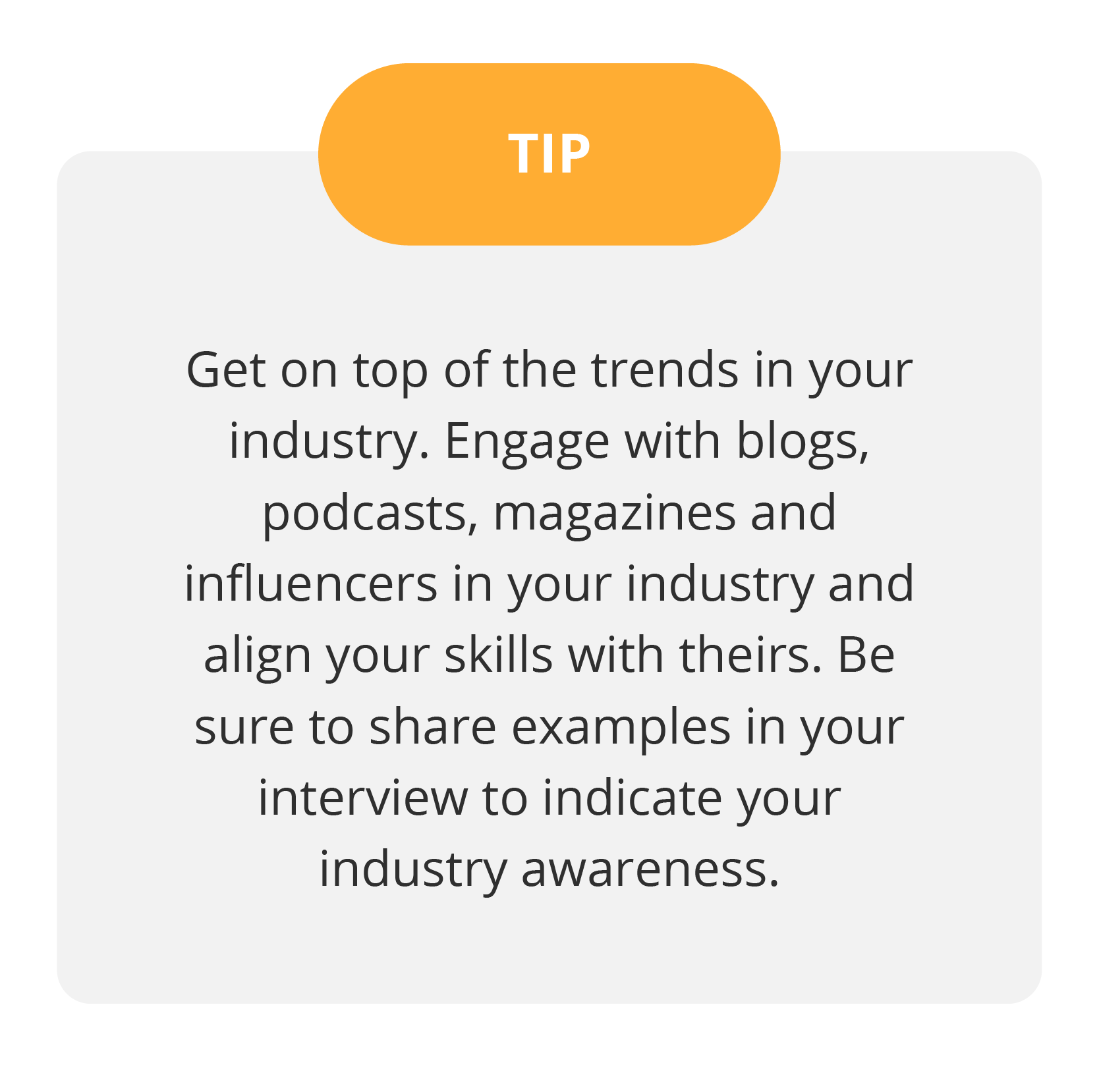Powerful Answers to 15 Common Interview Questions
Creating an impressive CV should be the first step when searching for a job and plays a pivotal role in securing an interview. But once that interview arrives, you’re going to need to brush up on your Q&A skills to ensure you’re sufficiently prepared and, ultimately, land the job.
LEARN HOW TO CREATE AN IMPRESSIVE CV
Many interviews follow a similar pattern. Questions can be divided into three categories based on the objectives they are trying to achieve: your background and goals for the future, your professional behaviour, and your role and skills. Ready yourself for future interviews that may come your way by preparing answers to these 15 common questions.
Questions related to your past, present, and future

Interviewers often ask personal questions to gauge your personality and assess whether you’re the right fit for the organisation’s culture. Your experiences prior to this interview are important for positioning your key characteristics that’ll set you apart from other candidates.

Avoid unnecessary distractions and be sure to share insights that reflect well on your work ethic, personal goals and, above all else, professionalism.

Choose between three to four achievements or pivotal moments you would want the interviewer to know above all else. Finish with an outlook on your current situation and why you’re ready for this role.
LEARN HOW TO CREATE THE ULTIMATE ELEVATOR PITCH

This question is asked to give an indication of what expectations you carry for both yourself and your career. Use the opportunity to focus on what experience, growth and goals you’re aiming towards, and be honest about your ambitions.

Ditch the broad thesaurus regulars every interviewee uses when asked this question. Instead, look to words that you actually use — ones you’re able to connect with and practise. The aim is to name three positive traits about yourself. Go for ones related to your thinking, your ethics, and your personality.

Walk your interviewer through your version of a well-spent weekend. Aim to highlight your hobbies outside of work, excursions you often enjoy, or where you could most often be found.
Lean away from oversharing or creating any unprofessional suspicions from the details of how you indulge in your free time.

Be strategic in your response by making subtle connections between the business environment at the company you’re applying to and specific situations in which you excel. Avoid being too general with your reply; mentioning words like ‘busy’, ‘exciting’, ‘challenging’ or ‘fun’ will not give a true indication of your individual motivators or drivers.
Behavioural questions you should be ready to answer

Many organisations use behavioural questions to gauge how your past professional and personal experiences will impact your future prospects for the position.

When last did you share a really impactful story? As interview coach Pamela Skillings advises: “Candidates should prepare ‘interview stories’ which highlight the different competencies and skill sets the employer is looking for.”1

The interviewer is focusing on teamwork. Provide a story that highlights your ability to work well with a variety of team personalities, under difficult time constraints, or challenging project demands.

The key here is to present your story along with the process and preparation you went through before engaging with a prospective employer. This will indicate your ability to think strategically prior to presenting your opinion.

When answering this question, focus on a time when you had to manage multiple responsibilities and remained calm under the constraints. Include insight into your organisational routine and how you acted when juggling tasks.

Share a story that showcases your ability to adapt. Describe the biggest challenge you’ve experienced, the lessons you learnt during that time, and how you successfully navigated the job.

You need to show how you handle conflict both within a team and in the workplace. Focus on how you acted in the situation, how it played out, and the resolution that was reached.
Questions based on your skills and related to the role

Remember: you’re being hired to meet a business need and fill a skills gap in an organisation. Make sure your responses take this into consideration and frame your abilities and experiences as answers to their problems. “Companies of all shapes and sizes really hire just one thing and one thing only: solutions providers,” says Chris Westfall, contributing careers writer at Forbes.2 “Your strategy should show exactly how you offer your solution.”


Target your response towards your top accomplishments, which will bear a relevance to the role you’re interviewing for. Provide specific examples of how you’ve demonstrated your skills successfully to achieve results in the past, and add metrics if relevant. Avoid staking claim to traits dramatically unrelated to your career path or strengths you’ll struggle to substantiate.

This is the perfect platform for you to sell yourself in your own words. Prove that you’re capable of doing the required work by being result-driven and mention of how you see yourself both fitting into and thriving in the company office culture.

Skip the standard response that plays towards some sort of strength. “I’m too hard on myself” is not a genuine reflection of your honesty. Show off your self-awareness by admitting to a professional weakness and then delve into how you are actively trying to overcome it. By indicating you’re working towards improvement, you’ll place the focus on your problem-solving abilities and the progress you aim to achieve.

Repeating the “About Us” section won’t do you any favours. You need to show that you’re aware of and understand the mission of the organisation. Start with keywords from their core values and align them to your own professional pursuits. This will show you care about what the business stands for and why you believe in their goals.

Craft your answer with a collaborative outlook on your personal and professional goals, relating them to what you understand about the company’s values. Don’t get caught up in the process and forget about why you — and only you — want this job. You need to draw attention to your underlying passions for your career and how they can tie into this organisation.
Want to give yourself an edge before you
walk into the interview room?
- 1 Skillings, P. (Nd). ‘Behavioral interview questions’. Retrieved from Big Interview. Accessed 30 January 2020.
- 2 Westfall, C. (Aug, 2019). ‘How to succeed in your next job interview: The 5 step story strategy’. Retrieved from Forbes.